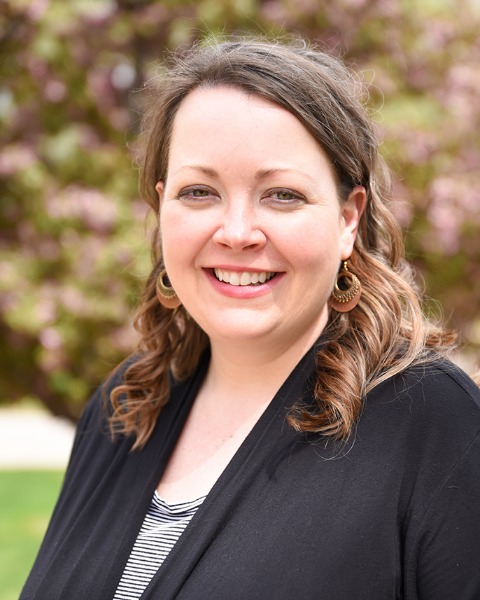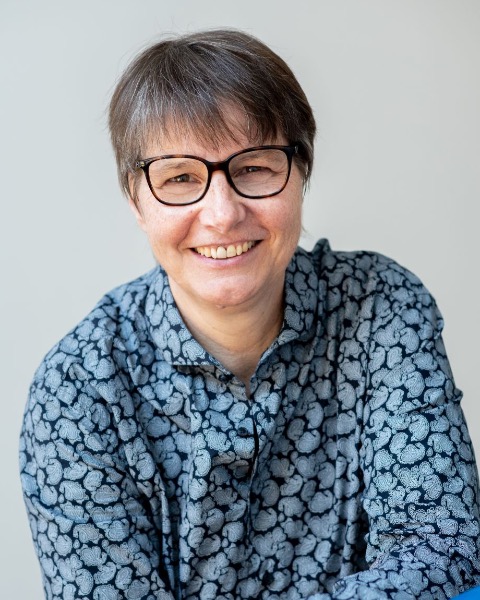Program Area: Interdisciplinary
Opportunities and Challenges of Innovative Qualitative Research Methods
-

Melinda Heinz, PhD
Associate Professor of Psychology
Psychology
Upper Iowa University
Fayette, Iowa, United States -

Keith Kleszynski, PhD
Assistant Professor of Research
Medicine, Section of Geriatric Medicine
University of Oklahoma Health Sciences Center
Oklahoma City, Oklahoma, United States -

Melinda Heinz, PhD
Associate Professor of Psychology
Psychology
Upper Iowa University
Fayette, Iowa, United States -

Martina Roes, RN, PhD, FGSA, FAAN
Professor for nursing Science and Health care research
Person-Centered-Dementia-Care
German Center for Neurodegenerative Diseases (DZNE)
Witten, Nordrhein-Westfalen, Germany -
JW
Joyce Weil, PhD, MPH, CPG
Rehabilitation and Human Services
University of Northern Colorado
Greeley, Colorado, United States -
AL
Angela Lavery, PhD, LCSW, FT
Associate Professor
Graduate Social Work and Gerontology Certificate
West Chester University
West Chester, Pennsylvania, United States -
SB
Saloua Berdai Chaouni, PhD
Senior Researcher
Educational Care
University College Karel de Grote Antwerp
Antwerp, Antwerpen, Belgium
Chair(s)
Discussant(s)
Individual Symposium Abstract First Author(s)
Using new qualitative methods can be exciting and add value to the field. However, Institutional Review Boards (IRB) approval can be a challenge if the methods are relatively new. This symposium provides an overview of 1) how several new methodologies have been used 2) IRB approval challenges and resolutions and 3) how varied disciplines can work together to understand phenomena. The first presentation explains how older adults used photographs to document meaning/purpose in their lives. IRB expressed concerns over identifying information in photographs. Discussion of how interdisciplinary collaborations create opportunities for diverse data dissemination will be included. The second presentation focuses on intersectionality and the benefits/challenges to understanding socially constructed identities. Discussion explains how to implement this methodology, including how category complexity creates additional possibilities for data analysis but also difficulties with narrowing down approaches. In the third presentation, examples of how to conduct co-research, such as photovoice with older adults will be reviewed, including best practices. Smartphones offer extensive possibilities for co-research; but developing IRB protocols to address concerns are needed. The fourth presentation outlines digital storytelling between older adults and university students. An explanation of how digital storytelling is connected to the narrative method and critical gerontology framework will be addressed. Advantages and pitfalls of digital storytelling with also be discussed. The last presentation focuses on using reminiscence with older migrant workers who have dementia, using a decolonial framework. The project seeks to improve participatory action research, with increased focus on “hearing” participants.
Learning Objectives:
- After attending this session, participants will learn how several researchers used new and diverse techniques in qualitative research to study the phenomenon or topic.
- After attending this session, participants will learn about challenges that researchers faced when seeking IRB approval for qualitative methods.
- After attending this session, participants will learn about how qualitative methods can be beneficial to interdisciplinary research.
Presentations:
-
12:00 PM – 1:30 PM ETPhoto Documentation: Using New Methods in Collaboration with Art
Individual Symposium Abstract First Author: Melinda S. Heinz, PhD – Upper Iowa University
-
12:00 PM – 1:30 PM ETIntersectionality and Qualitative Health Research: Potentials to Impact Qualitative Research
Individual Symposium Abstract First Author: Martina Roes, RN, PhD, FGSA, FAAN – German Center for Neurodegenerative Diseases (DZNE)
-
12:00 PM – 1:30 PM ETPlace and Meaning of Home: Research in a Virtual, Photovoice Lens
Individual Symposium Abstract First Author: Joyce Weil, PhD, MPH, CPG – University of Northern Colorado
-
12:00 PM – 1:30 PM ETDigital Storytelling and Intergenerational Collaborations: Older Adults and College Students
Individual Symposium Abstract First Author: Angela Lavery, PhD, LCSW, FT – West Chester University
-
12:00 PM – 1:30 PM ETHearing the Voice of Older Migrants with Dementia: A Decolonial Approach of Participative Action Research
Individual Symposium Abstract First Author: Saloua Berdai Chaouni, PhD – University College Karel de Grote Antwerp
